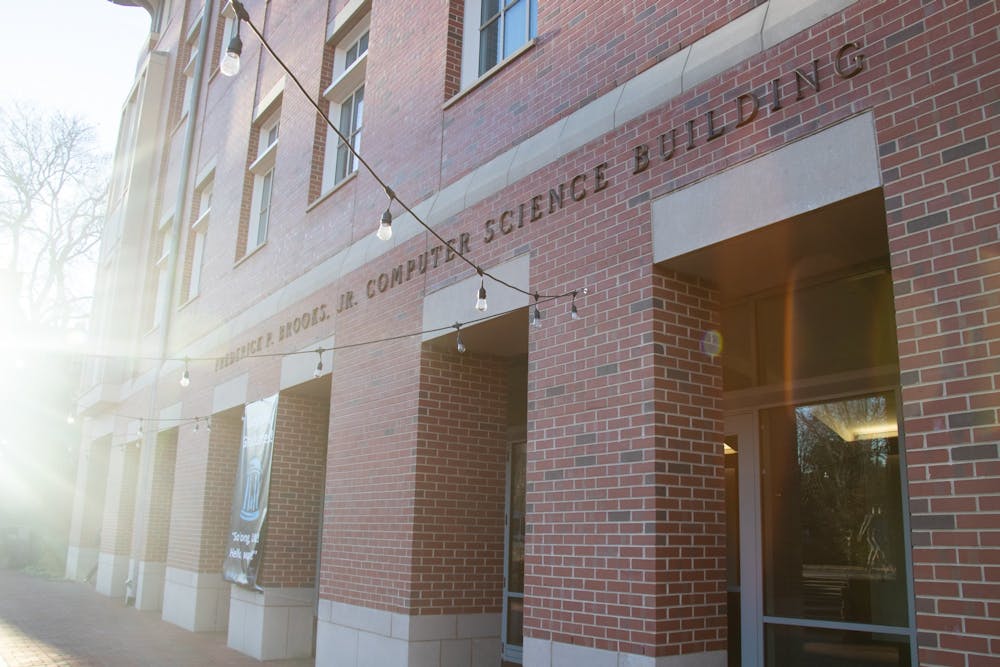Meghan Sun, co-president of Girls Who Code – an organization that teaches middle and high school girls to code – said that different majors within the computer science department were also united in the CSXL space with inclusion for female and non-binary students.
She voiced the importance of creating a space of this inclusive nature.
“I feel like you're able to build more relationships and get to be exposed to more people's perspectives,” she said.
Assistant Professor Danielle Szafir has been teaching at UNC for two years, and she said there is a larger sense of inclusion within the UNC community compared to her previous teaching locations.
“We meet very regularly in large groups, most decisions impacting the entire program are made with the input and the consent of the full faculty,” she said.
She also said working in a male-dominated field often leads to women completing unwanted tasks, specifically serving on search committees as a diverse perspective.
“They said point blank, ‘we realized we didn't have any women in our department who knew about this particular topic. So, we wanted you to help us out if you're able and willing, because we need a more diverse perspective,'” Szafir said.
She also said women are more likely to receive unsolicited advice concerning career paths.
Student Sneha Jaikumar is a diversity, equity and inclusion ambassador within the computer science department and said she remembers feeling intimidated by the male-to-female ratio in her introductory classes.
“I'd feel more comfortable going after class to talk one-on-one with the professor than raising my hand during class or anything,” she said.
Szafir said professors can create a more inclusive environment by informing students on upcoming events, creating assignments based on topics of interest and seeking out personal blindspots.
The computer science DEI ambassadors regularly hold events for students to attend and connect with the community. Jaikumar said these events are largely student-led.
To get the day's news and headlines in your inbox each morning, sign up for our email newsletters.
“I think these DEI initiatives are helping to an extent, but I think we do have to improve our reach and get out to more people,” she said.
As a piece of advice to students considering computer science as a major, Sun said while there is a sense of discomfort that comes along with unfamiliar experiences, it is important to embrace the change.
“You're not alone with your fears. Everyone does experience it, but just knowing the end result can be really rewarding,” she said.
Szafir further warned against being deterred by a program due to a lack of representation if the field is of personal interest.
Jordan also attributed the growing representation in the CS department to a diverse array of teaching assistants who build individual connections with students.
“I think seeing people who share similar backgrounds and identities as you succeeding in a field that has a reputation for not being very diverse is a good motivator to know that you can succeed in this too,” Jordan said.
@dailytarheel
university@dailytarheel.com



